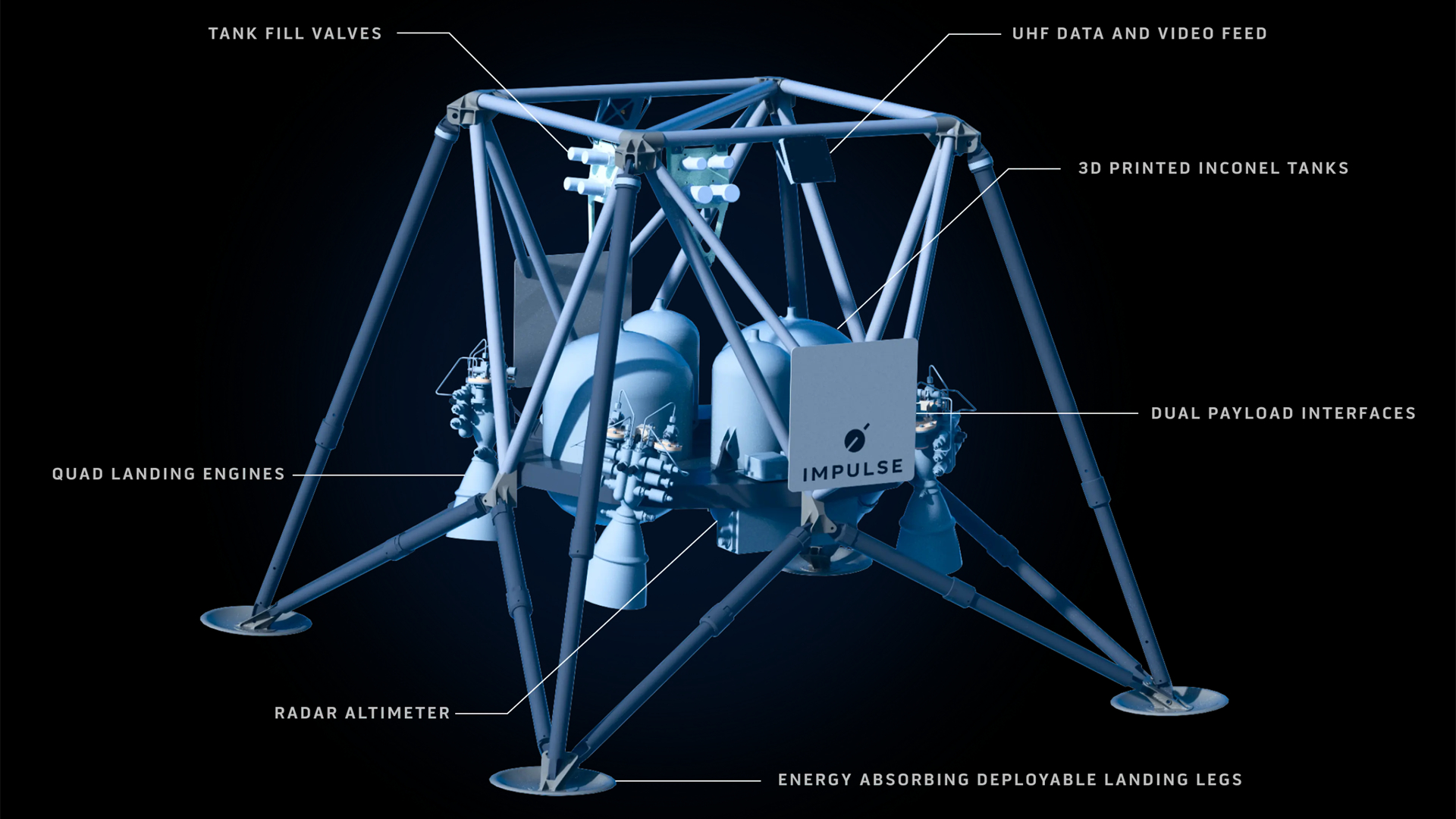The race to Mars is getting crowded.
Two startup space companies in California, Relativity Space and Impulse Space, announced today (July 19) that they are teaming up to launch the first commercial mission to Mars in 2024, years before the first potential trip by the more established SpaceX, which is known for its long-term plans to establish a human settlement of the Red Planet.
According to a press release (opens in new tab), Relativity Space would provide its reusable, 3D-printed Terran R rocket for the mission’s launch, while Impulse Space would provide its Mars Cruise Vehicle and Mars Lander to place equipment on the Martian surface.
Related: See SpaceX’s Starship Mars rocket fully stacked for testing on the pad
The 2024 timeline for this proposed mission would put Relativity Space and Impulse Space ahead of Elon Musk’s company, which could land a commercial mission on Mars by the end of this decade, according to the company’s President and Chief Operating Officer Gwynne Shotwell. SpaceX hasn’t set a firm date for the planned Mars trip yet.
If Relativity and Impulse can pull off their plan, they just might be the first commercial space companies to reach the Red Planet. However, it is important to note that neither company has put a single payload into space to date.
That doesn’t mean they haven’t been laying the groundwork. Relativity Space was founded in 2015 and has since raised over $1 billion in funding, Ars Technica reported (opens in new tab). The firm has been pioneering the use of metal 3D printers to manufacture its rockets’ fuselages and engines, a manufacturing approach Relativity claims reduces supply chain complexity and development timelines.
Relativity Space currently operates or is developing multiple launch facilities and their related infrastructure (opens in new tab) at several U.S. Air Force and NASA installations. While this construction makes it clear that Relativity Space intends to become a major player in the commercial launch services industry, it has yet to put a rocket into space. The 2024 mission would be Relativity’s first launch of the Terran R.
Impulse Space was founded in 2021 and currently has 40 employees. According to their LinkedIn page (opens in new tab), the firm intends to enable “low-cost and nimble last-mile space payload delivery” so that customers can “access any orbit” or even reach other worlds. According to their website, the company specializes in “creating orbital maneuvering vehicles specifically for last-mile payload delivery,” such as the two vehicles it has proposed for the 2024 Mars mission with Relativity Space.

Despite the fact that the planned 2024 mission will be their first, leaders at both companies have made it clear they have confidence that this partnership can land a payload on Mars.
“This is a major milestone for both Impulse and Relativity, as well as the entire space industry,” Impulse Space Founder and CEO Tom Mueller said in the statement. “One of the most challenging aspects of landing on Mars is the ‘glide stage,’ which involves an aeroshell to encapsulate the lander for the survival of Mars entry. With the power of our combined teams, experience and passion, I am confident this historic mission will be just one of many to come.”
Impulse’s Mueller was a founding member of SpaceX and led its propulsion department from 2014 to 2019, having previously served as VP of Propulsion Engineering from 2002 to 2014, according to his LinkedIn profile (opens in new tab).
For his part, Relativity Space Cofounder and CEO Tim Ellis stated that the partnership between the two firms makes humanity’s dream of reaching Mars obtainable. “We believe building a multiplanetary future on Mars is only possible if we inspire dozens to hundreds of companies to work toward a singular goal,” Ellis said in the statement. “This is a monumental challenge, but one that, successfully achieved, will expand the possibilities for human experience in our lifetime across two planets.”
Speaking to the New York Times, Mueller said (opens in new tab) that landing a craft on Mars by 2024 is an immense challenge and that while there are plenty of naysayers who think the mission is unlikely to succeed, that level of challenge is exactly what the company
“We need to do stuff that people think can’t be done,” Mueller told the Times (opens in new tab).
Follow Brett on Twitter at @bretttingley (opens in new tab). Follow us on Twitter @Spacedotcom (opens in new tab) or on Facebook (opens in new tab).

